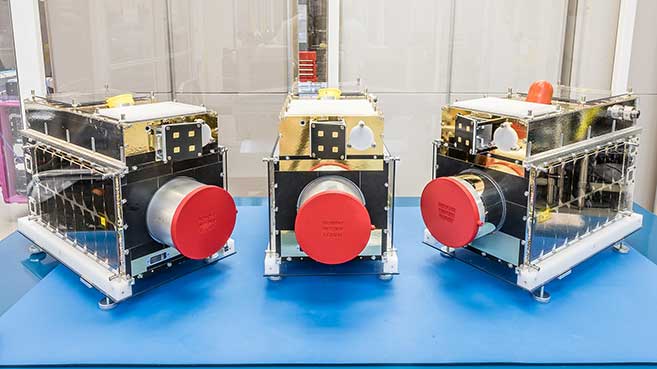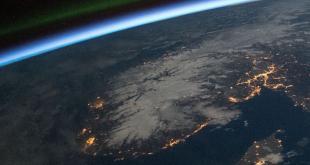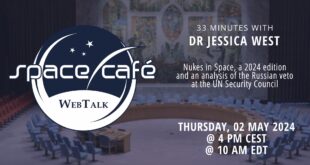
London, 8 September 2023.- Space Flight Laboratory (SFL) announced on the 7th of September that the SFL-built GHGSat greenhouse gas monitoring microsatellites have achieved sustained detection and measurement of methane emissions at double the design capacity of the satellite. SFL developed all nine operational 15 kg GHGSat spacecraft on its NEMO microsatellite bus.
Additionally the GHGSat-D demonstration satellite, CLAIRE, developed by SFL, which was launched in 2016 has exceeded its operational design life by more than two years. Eight commercial satellites, GHGSat-C1-C8, launched individually and in clusters since 2020 are in good health.
“The SFL-built satellites have exceeded our expectations regarding technological performance. Each satellite is now making twice as many emission measurements per day as originally planned,” said Stephane Germain, GHGSat President. “This performance has enabled us to push our monitoring capability further, helping more clients better understand and reduce their emissions.”
Space Flight Laboratory will discuss the GHGSat satellites and other programs in its exhibit booth at the World Satellite Business Week (WSBW) conference in Paris on the 11th-15th of September.
GHGSat chose SFL to develop the CLAIRE demonstration mission in part due to SFL’s expertise in implementing advanced attitude control and stability technologies that enable smaller spacecraft to accurately point sensors at targets on the ground. With the demand for attitude and tracking performance that was rare in satellites of that size, this capability was crucial to GHGSat’s mission objectives.
SFL’s heritage includes 70 operational successes with an additional 26 satellites under development or awaiting launch. These missions relate to Earth observation, atmospheric monitoring, ship tracking, communication, radio frequency (RF) geolocation, technology demonstration, space astronomy, solar physics, space plasma, and other scientific research.
 SpaceWatch.Global An independent perspective on space
SpaceWatch.Global An independent perspective on space




